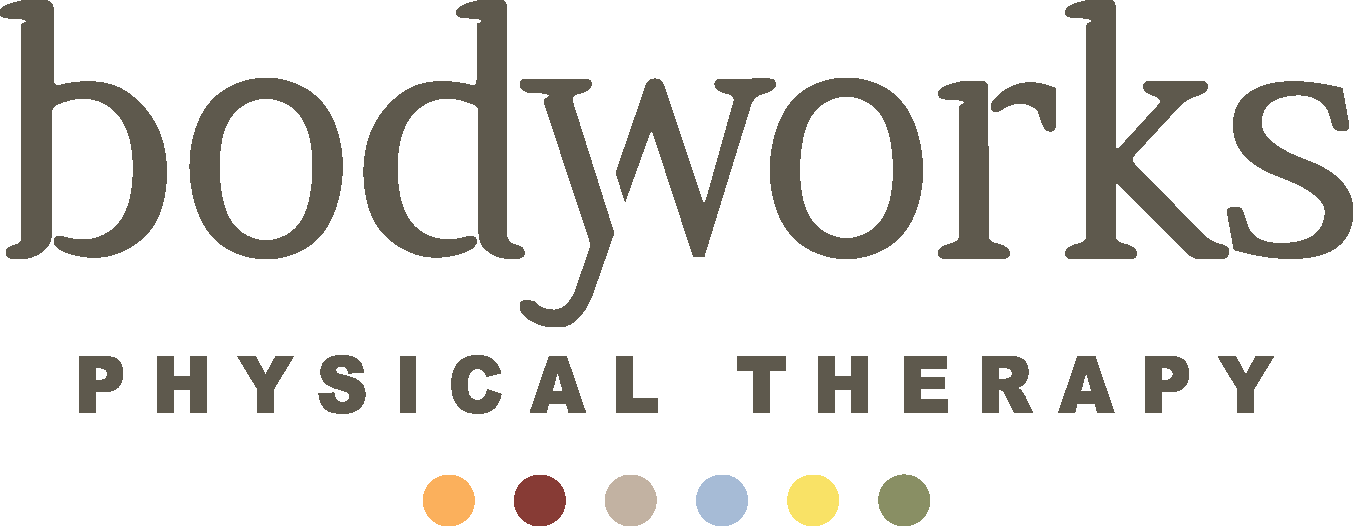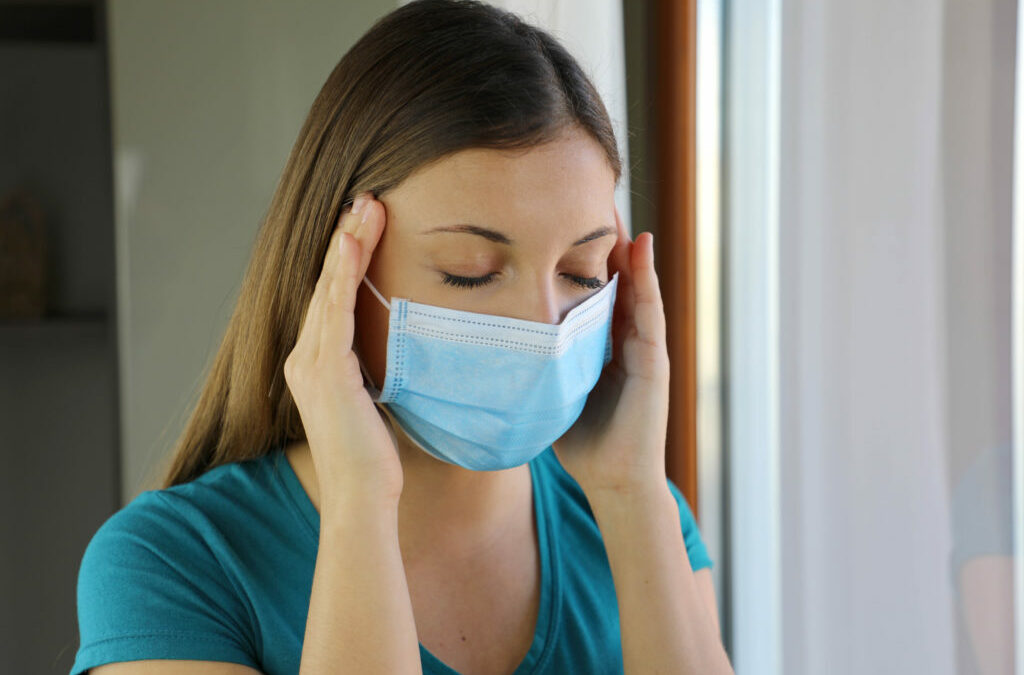To help decrease the spread of COVID-19, most of us are wearing a face mask these days. Many are wearing them for several hours each day. After a couple of months of wearing a mask at the clinic, I started to notice an increase in tension in the muscles of my face and jaw. I also started to hear from my patients that they were experiencing an unusual increase in facial tension and headaches. It didn’t take long to put it together – there is a definite link between wearing a face mask and jaw pain, neck pain, and headaches.
There are several reasons why wearing a mask can contribute to jaw pain, neck pain and headaches. First, wearing a mask causes many people to switch from nose breathing to open mouth breathing which can cause tension to develop in the muscles around the jaw. Second, while wearing a mask we often change how we speak. For example, we tend to open our mouths less or push the jaw forward while talking, again creating more tension in the jaw muscles. Finally, tight ear loops can pull the ears or even the whole head forward as well cause us to use different facial muscles to keep the mask in place.
Fortunately, we’ve got some tips for you to help ease your pains related to face mask wearing:
- Choose a mask that fits you well. Make sure that it adequately covers your nose and comes under your chin so that it isn’t sliding around. Masks with moldable nose pieces can be especially helpful for this.
- Ensure that the ear loops are snug enough to keep the mask in place, but are not pulling the ears forward. Ear savers or ear loop extenders may be helpful for this.
- Try to position your jaw in its ideal resting posture: teeth slightly apart and tip of the tongue on the roof of the mouth like you are quietly saying the letter “n”. Say it out loud with me “nnnn.” This position helps ease tension in the muscles around the jaw.
- If you are experiencing a lot of jaw pain, try using heat or ice to help ease symptoms. You can do some self-massage to the muscles between your cheek bones and your lower jaw. You should also limit extra stressors on the jaw muscles like chewing gum or eating crunchy or chewy foods like steak or harder breads.
If these tips aren’t enough and you are still having jaw pain and headaches, call us at 701-893-2639. One of our physical therapists will perform a comprehensive evaluation of your situation and develop a customized treatment plan for you!

